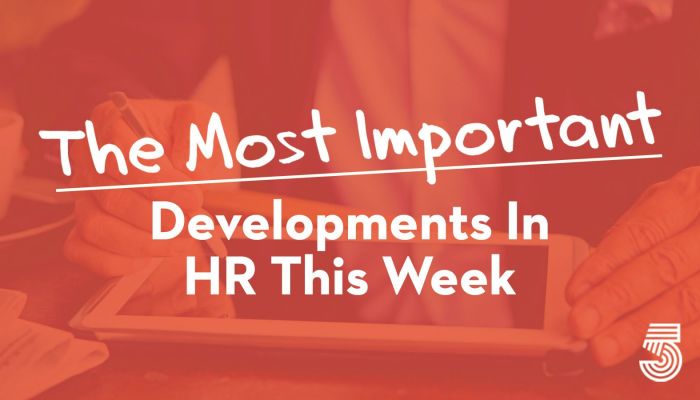The M.I.D., as we call it, is curated by our editorial team from more than 50 news sources. Like a lot of good ideas, this started as something I wanted for myself. If I can’t read everything, I at least want to stay abreast of the most important developments.
This week in HR, it was all about omicron. The variant was blamed for the economic recovery taking a dip, Mayo Clinic fired 700 workers for not getting the vax while Goldman Sachs isn’t just requiring the vax but the booster too, Walmart is coaxing employees to get it, and amid all of that, the Great Resignation rages on.

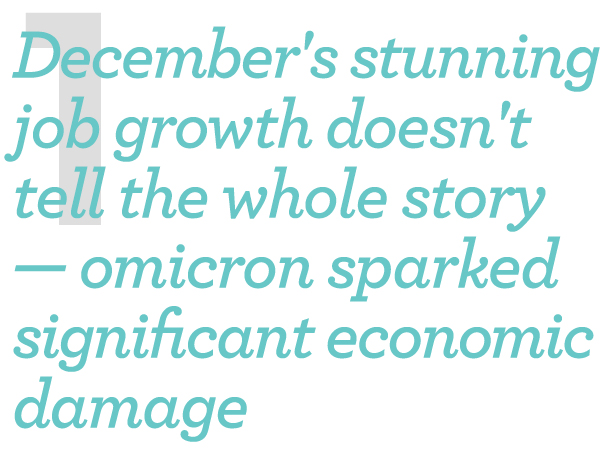
Private U.S. employers posted the strongest job growth in seven months in December, according to payroll processor ADP, but experts caution the promising data shouldn’t be cause for celebration just yet, forecasting it’ll take at least a few more weeks to know how the latest, record surge in coronavirus cases — spurred by the rapidly spreading omicron variant — will impact the economic recovery. Less than a week after the tracking period, omicron became the dominant strain in the United States, fueling a surge that pushed new daily cases from about 36,000 on Dec. 12 to an all-time high of more than 1 million on Monday. “Risks are rising,” Moody’s Analytics’ Mark Zandi wrote in a weekend research note, adding that the economic recovery “is set to turn soft” as omicron stunts business and pointing to recently soft credit card spending (particularly for travel), decreased restaurant bookings, and widespread flight cancellations as key points of concern. Forbes

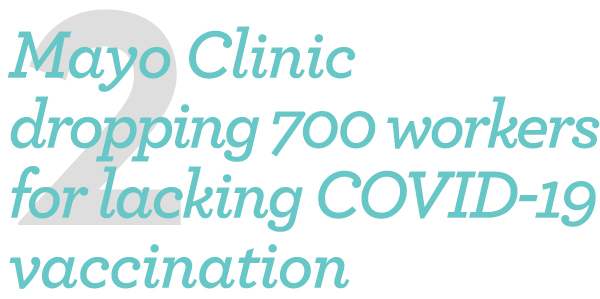
About 700 workers are losing their jobs at Mayo Clinic for failing to comply with a vaccine mandate policy at the Rochester-based health system. Employees had until Monday to either receive their first shots or obtain an exemption for medical or religious reasons. Mayo said it granted the majority of exemption requests. The clinic introduced its policy last year, saying it was necessary to provide the safest possible environment at Mayo, which treats patients who come from around the world for complex care. “Based on science and data, it’s clear that vaccination keeps people out of the hospital and saves lives. That’s true for everyone in our communities — and it’s especially true for the many patients with serious or complex diseases who seek care at Mayo Clinic each day.” Star Tribune

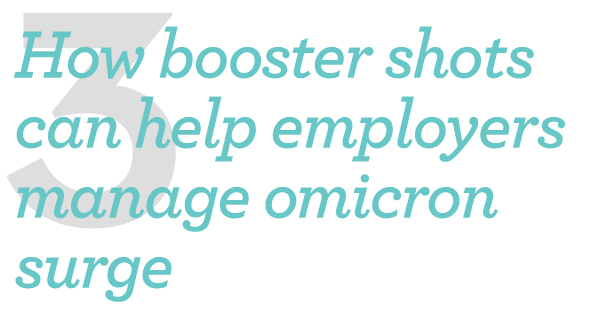
As the omicron variant surges across the nation, resulting in a record number of COVID infections, employers have their eyes on one significant job: getting employees boosted. Now, with experts encouraging virtually all Americans to get another shot, more organizations are turning their attention to additional COVID vaccine doses for employees. “Early data suggests that third doses of mRNA vaccines provide additional protection against the omicron variant,” says Dr. Jeff Levin-Scherz, population health leader at Willis Towers Watson. “Companies with higher levels of vaccination in their employees will have fewer business risks, both from infected employees and overall work disruptions.” That not only means that employers will get more aggressive in their encouragement for employees to get a booster shot, but it also means more employers will begin to require the extra vaccine doses in the coming months. Investment bank Goldman Sachs, for instance, said last week that it will require employees and visitors to its U.S. offices receive booster shots starting in February. It’s a trend that will likely continue in the coming months. HR Executive


In collaboration with tech leaders from Google and Walmart, the NCRI developed a large-scale climate model of vaccine reluctance. We found that vaccine reluctance was correlated with a number of factors, including ethnic composition, searches on Google about side effects, wealth and inequality, partisanship in voter outcomes, percentages of health-challenged individuals, and tweets about COVID-related conspiracies. But the most interesting thing we found was not who didn’t want the vaccine, but who was succeeding in changing their minds. Walmart, the megastore, was managing to reach hesitant communities, even red ones, and get their members vaccinated. How did they manage this success? If the main factor in people being vaccine averse is a lack of trust in the medical and political establishment, Walmart countered that distrust by partnering with organizations, individuals, and even sports teams with a lot of trust in over 200 communities. And it was wildly successful. Newsweek

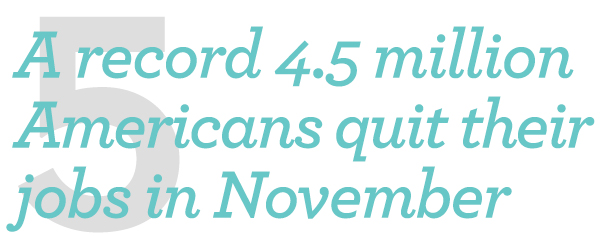
A record 4.5 million Americans voluntarily left their jobs in November, according to the Bureau of Labor Statistics. This pushed the quits rate to 3%, matching the high from September. Workers were most likely to quit their jobs in the hospitality industry, which had by far the highest quits rate at 6.1% in November, as well as those in health care. The numbers in transportation, warehousing, and utilities also increased. The big question for 2022 is whether this dynamic will persist. The high quits rate is a symptom of the tight labor market where workers can quickly find a new and potentially better job. The November data released Tuesday doesn’t yet factor in the arrival of the omicron variant on U.S. shores, which pushed infections higher and put many workers at risk to contract the virus at their places of work. CNN







